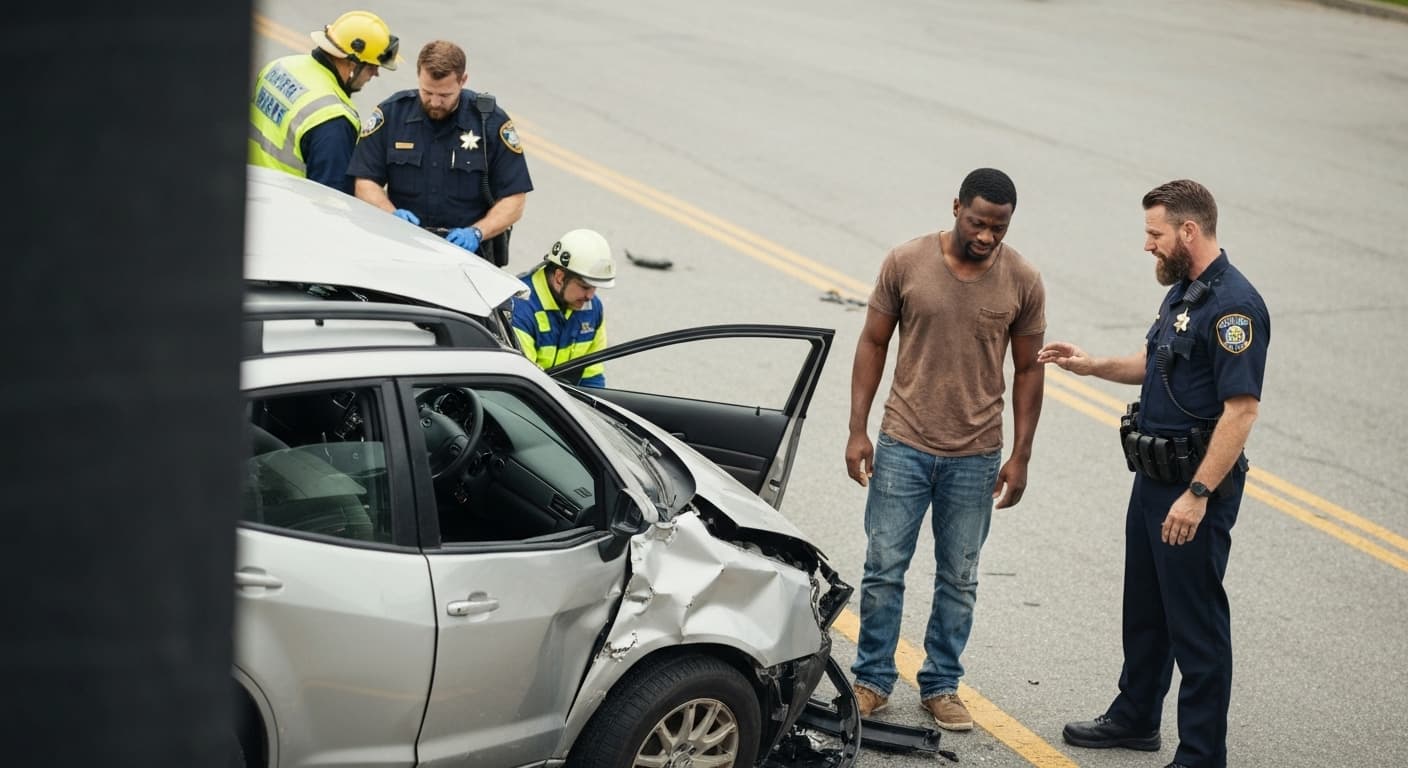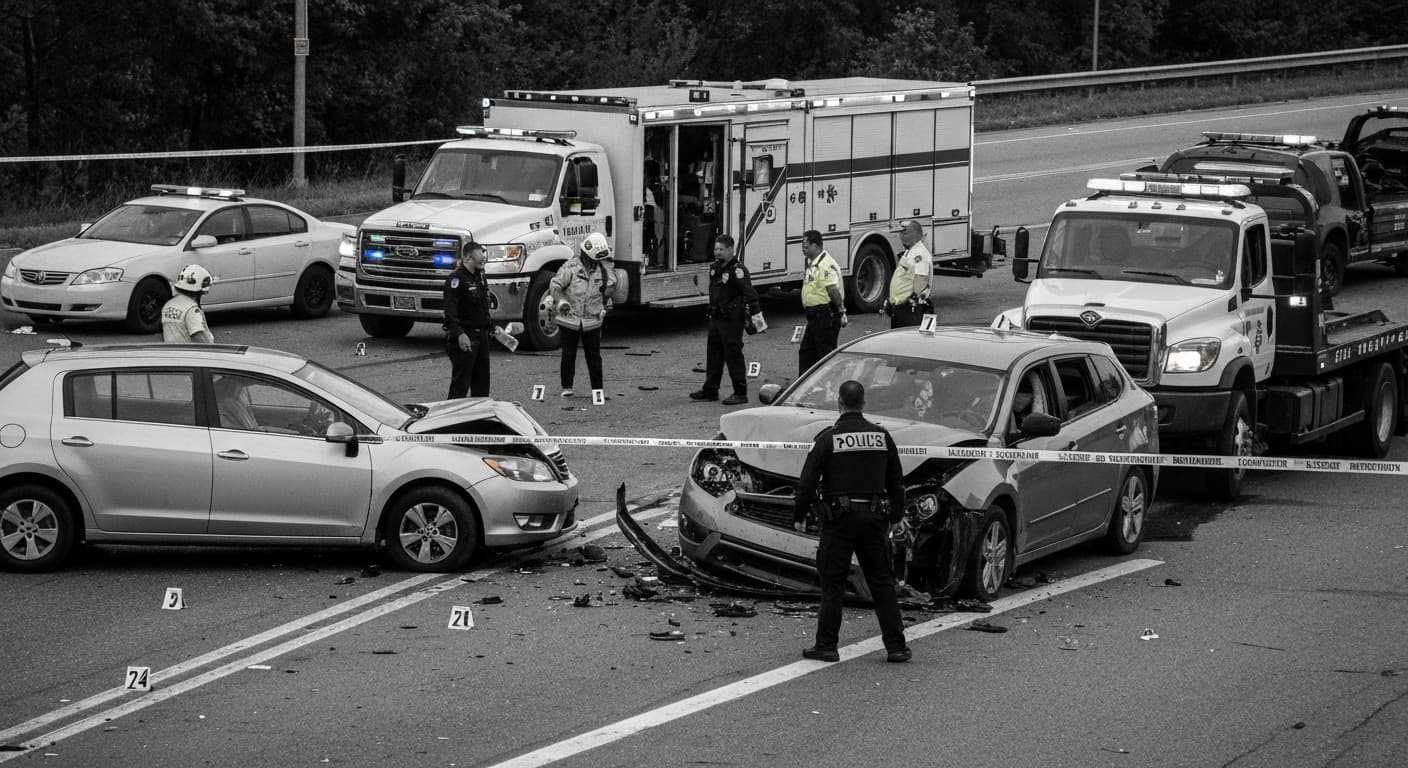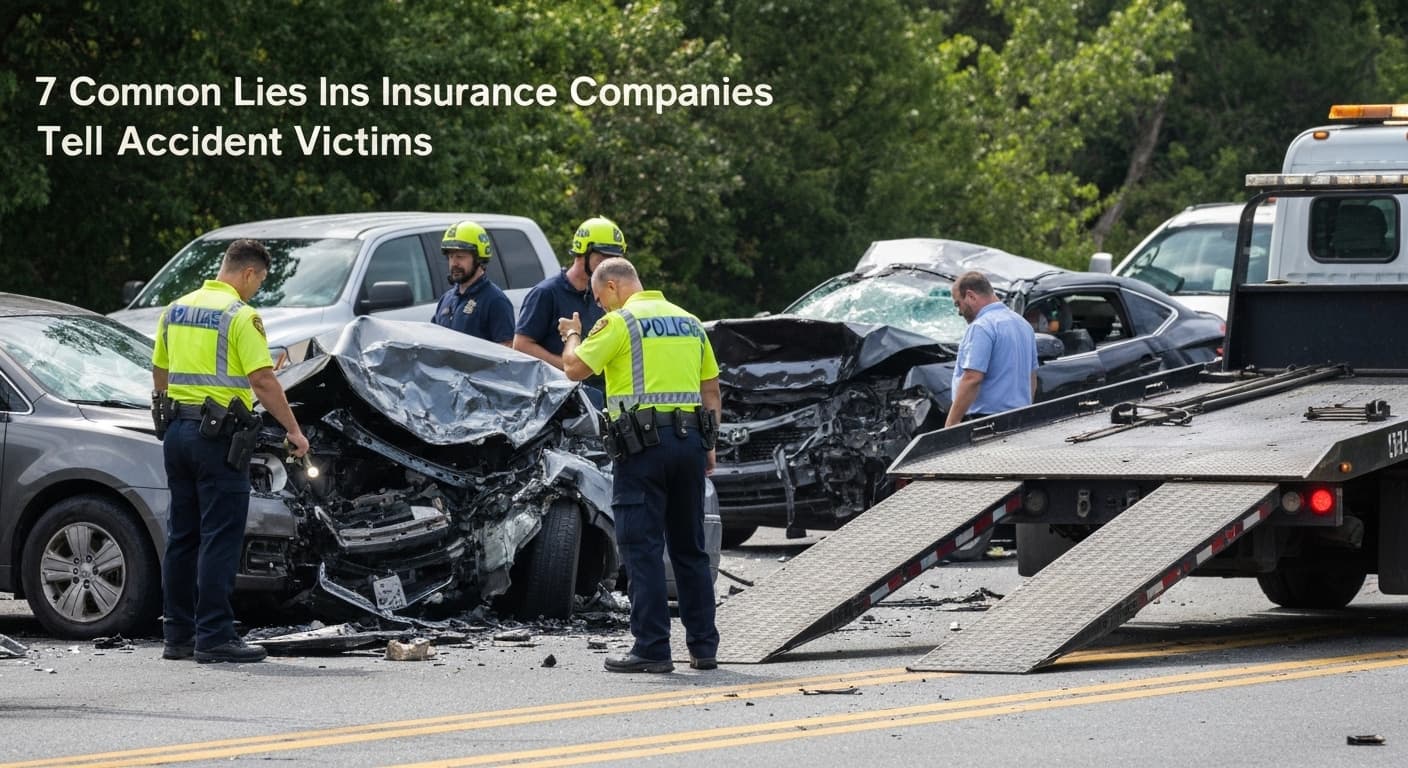
Driver Responsibilities: What to Do in a Car Accident?
Learn your legal responsibilities as a driver after a car accident, including safety duties, information exchange, and reporting requirements.
# Driver Responsibilities: What to Do in a Car Accident?
As a driver, you have specific legal and ethical responsibilities when involved in a car accident. Understanding these duties can protect you legally and ensure you handle the situation properly.
Legal Responsibilities
Stop at the Scene
Legal Requirement:
- Must remain at accident scene
- Cannot leave until duties are fulfilled
- Applies even if accident seems minor
- Leaving can result in hit-and-run charges
Render Aid
Duty to Help:
- Assist injured persons
- Call for medical help
- Provide reasonable assistance
- Don't move seriously injured unless in immediate danger
Exchange Information
Required Details:
- Name and contact information
- Driver's license number
- Insurance company and policy number
- Vehicle registration information
- License plate number
Report the Accident
When Required:
- Injuries occurred
- Property damage exceeds state threshold
- Vehicles cannot be driven
- Requested by other party
- Required by local law
Immediate Safety Responsibilities
Secure the Scene
- Turn on hazard lights
- Move vehicles out of traffic if safe
- Set up warning devices
- Prevent additional accidents
Check for Injuries
- Assess yourself and passengers
- Check other parties involved
- Call 911 for any injuries
- Don't attempt medical treatment beyond basic first aid
Control Traffic
- Direct traffic around accident if necessary
- Use flares or reflective triangles
- Stay visible to oncoming traffic
- Keep others safe
Documentation Responsibilities
Gather Evidence
Take Photos Of:
- All vehicle damage
- Accident scene layout
- Traffic signs and signals
- Road conditions
- License plates
Collect Information
From Other Drivers:
- Contact information
- Insurance details
- Vehicle information
- Driver's license numbers
From Witnesses:
- Names and contact information
- What they observed
- Their location during accident
Create Written Record
- Time and date
- Weather conditions
- Traffic conditions
- Description of what happened
- Damage assessment
Communication Responsibilities
What to Say
Stick to Facts:
- Describe what you observed
- Provide required information
- Answer police questions honestly
- Be polite and cooperative
What NOT to Say
Avoid:
- Admitting fault ("I'm sorry")
- Speculating about causes
- Discussing insurance coverage details
- Making accusations
- Arguing about fault
Dealing with Police
- Cooperate fully
- Answer questions truthfully
- Don't volunteer unnecessary information
- Ask for report number
- Get officer's name and badge number
Insurance Responsibilities
Notify Your Insurance
When to Call:
- As soon as possible after accident
- Within 24-48 hours maximum
- Even if you're not at fault
- Before speaking to other insurance companies
Information to Provide:
- Policy number
- Accident details
- Other party's information
- Police report number
- Witness information
Cooperate with Investigation
- Provide requested documentation
- Submit to medical examinations if required
- Allow vehicle inspection
- Give recorded statement if necessary
Medical Responsibilities
Seek Medical Attention
When Required:
- Any pain or discomfort
- Even if injuries seem minor
- If you feel "shaken up"
- When adrenaline may be masking pain
Follow Medical Advice
- Attend all appointments
- Complete prescribed treatments
- Take medications as directed
- Follow activity restrictions
Document Medical Care
- Keep all medical records
- Save receipts and bills
- Track symptoms and limitations
- Follow up as recommended
Financial Responsibilities
Property Damage
Your Obligations:
- Pay for damage you caused
- Cooperate with damage assessment
- Provide access to your vehicle
- Work with insurance companies
Personal Injury
If You Caused Injuries:
- Your insurance should cover medical costs
- Cooperate with claims process
- Don't discuss settlement directly
- Let insurance handle negotiations
State-Specific Requirements
Reporting Thresholds
Varies by State:
- Property damage: $1,000-$4,000
- Any injury accidents
- Fatality accidents
- Hit-and-run incidents
Time Limits
Report Within:
- Immediately for serious accidents
- 24 hours for injury accidents
- 72 hours for property damage
- Check your state's specific requirements
Special Situations
Uninsured Drivers
Your Responsibilities:
- Still exchange information
- Document everything thoroughly
- Report to your insurance
- Consider legal consultation
Commercial Vehicles
Additional Requirements:
- Company notification
- DOT reporting if applicable
- Drug/alcohol testing
- Employer cooperation
Government Vehicles
Special Procedures:
- Different claim procedures
- Shorter time limits
- Special documentation
- Government immunity issues
Protecting Yourself
Legal Protection
- Don't admit fault
- Document everything
- Get witness statements
- Consider legal representation
Insurance Protection
- Report promptly
- Cooperate fully
- Don't accept quick settlements
- Understand your coverage
Medical Protection
- Seek immediate care
- Follow treatment plans
- Keep detailed records
- Don't delay treatment
Common Mistakes
Don't:
- Leave the scene prematurely
- Admit fault or apologize
- Argue with other drivers
- Sign unknown documents
- Give detailed statements without legal advice
Do:
- Stay calm and professional
- Follow legal requirements
- Document everything
- Seek appropriate help
- Protect your interests
Conclusion
As a driver, your responsibilities after an accident include ensuring safety, providing aid, exchanging information, documenting the scene, and reporting as required by law.
Fulfilling these responsibilities protects you legally and helps ensure fair resolution of any claims or legal proceedings that may follow.
When in doubt about your responsibilities or how to handle a situation, don't hesitate to ask police officers, insurance representatives, or legal professionals for guidance.
Remember: Your primary responsibility is safety - everything else follows from there.
---
Questions about your responsibilities after an accident? Contact an experienced car accident attorney for guidance on protecting your rights and interests.


